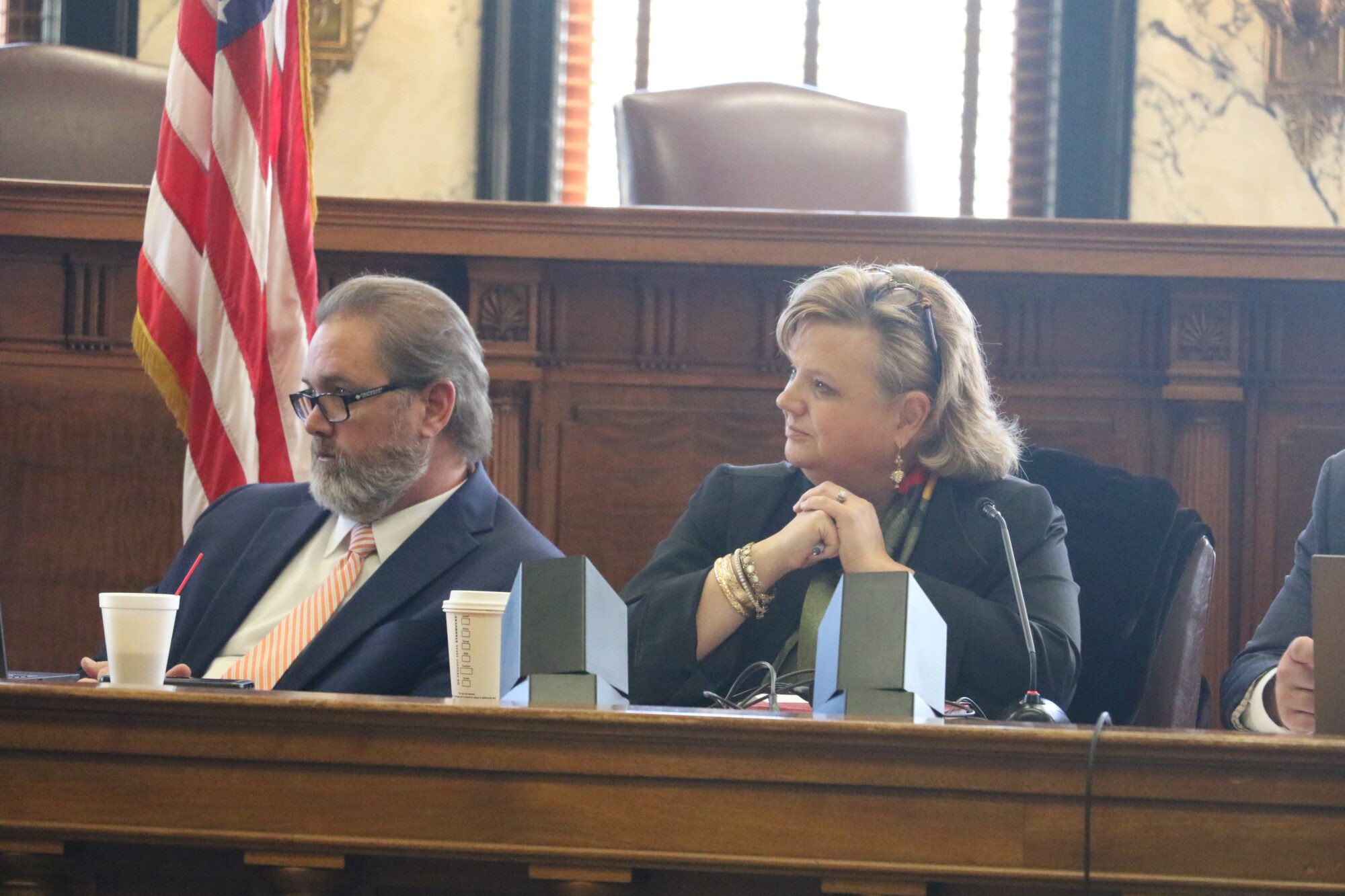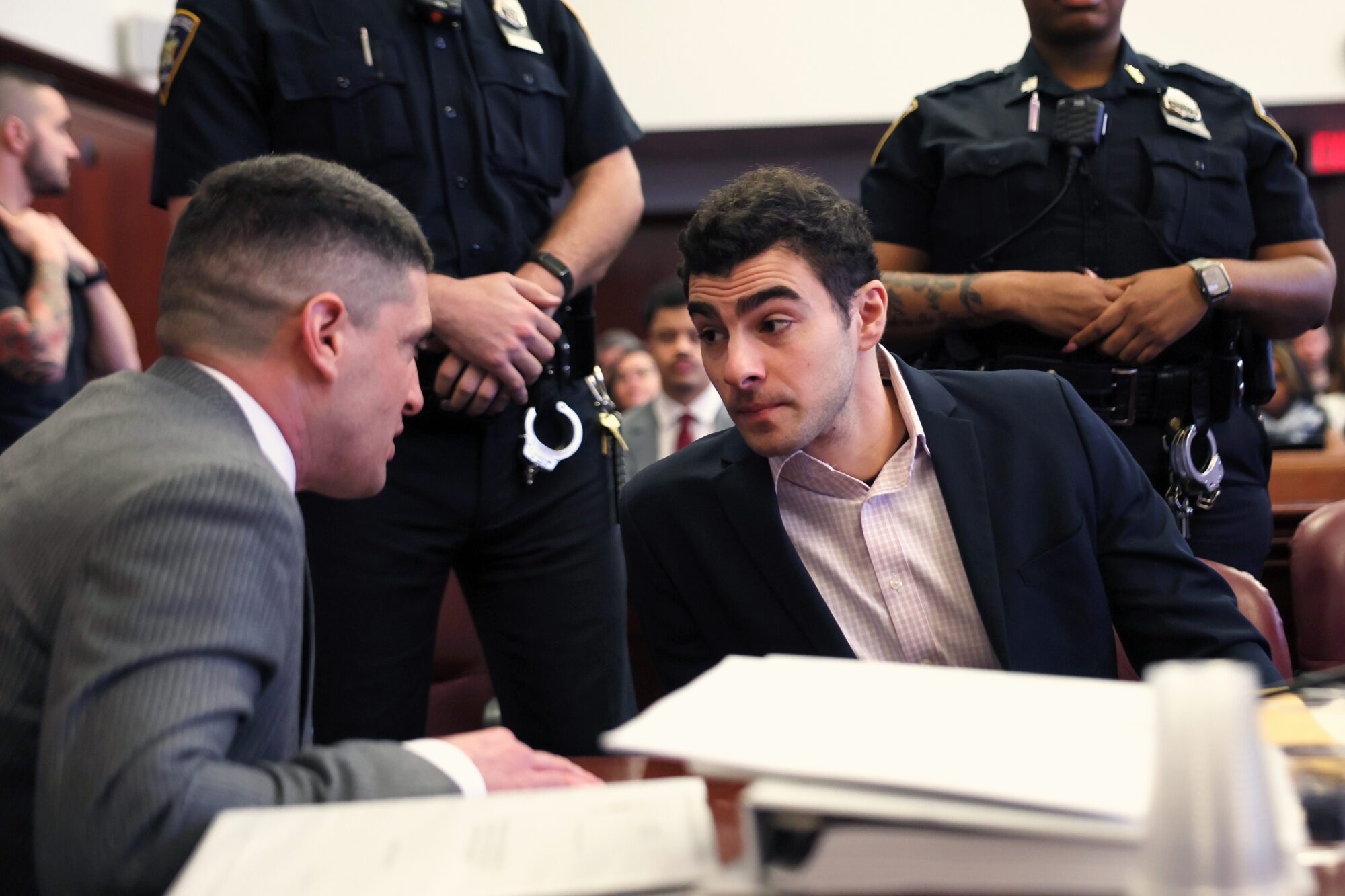McCain’s Veepstakes: Haley Barbour
Re-elected handsomely (58%) to his second term as governor of the Magnolia State in 2007, Barbour was neutral in this year’s GOP presidential race. Of nominee John McCain, Barbour recalled to me in December how he vigorously opposed the McCain-Feingold campaign finance legislation while RNC chairman and joked: “[The law] is terrible but McCain isn’t. While he and I don’t agree on campaign finance reforms, I think a lot of him.”
During our most recent interview, the governor said that McCain’s reputation as a maverick would be very helpful in winning independents and disgruntled Democrats from Barack Obama this fall. In his words, “John McCain is not as conservative as I am, but that may work to his advantage.”
Would Barbour consider being McCain’s running mate if asked by the nominee-to-be? Although not quite ruling this out, the Mississippian jokes that “if John McCain needs me to carry this part of the country, he’s in trouble.” Or will Haley beg off by citing the post-Hurricane Katrina rebuilding work he is still overseeing and how he has convinced business to invest in a state that has suffered a labor shortage on the Mississippi Gulf Coast since three months after the worst natural disaster in U.S. history?
But the talk of a “McCain-Barbour” ticket continues, in large part because of the nationwide network of Barbour friends who keep in touch with him and each other.
A Pol Yet An Issues Man
When I spoke to Gov. Barbour on May 12, the day before the special U.S. House race in Mississippi’s 1st District, he gave some hard-nosed analysis of the nationally watched contest his party would lose the following day: “We had a highly contested primary that was won by less than 1% of the vote. [Republican nominee] Greg Davis is a very good man but he’s from the wrong part of the district, where there are fewer people, and the Democrats nominated someone who’s more from the center of the district [which is more populous]. The Democrats are trying to say this race is geographic, it’s regional, because if they know it’s about issues and philosophy, they’ll get beat. It’s going to be close.” [Democrat Travis Childers beat Davis with about 54% of the vote.]
This is the Haley Barbour that most of people outside Mississippi know: the canny political operative with a grasp of how elections are won or lost. A graduate of the University of Mississippi and its law school, Barbour has been crunching numbers about voters since he was state director of the U.S. Census Bureau in 1969-70. He was executive director of the state Republican Party in the 1970s when the GOP was still the underdog in Mississippi and ran a losing bid for the Senate in 1982. He helped move his state into the solidly Republican column as its GOP national committeeman from 1984-98.
But, much like Richard Nixon, Barbour meshes an encyclopedic knowledge of grass-roots politics with a solid understanding of issues.
In our May interview, the governor proudly recounted to me how “we just got another budget through [the legislature] without any tax increase.” When we spoke shortly after his re-election last year, Barbour recalled how “I told people a few thousand times when I was running for governor [in 2003, against Democratic incumbent Ronnie Musgrave], I was against raising anybody’s taxes. And I meant it.”
Facing a Democratic legislature after taking the oath as governor, Barbour told HUMAN EVENTS colleague Allan Ryskind and me, he was worried that “if I agreed to any tax increase, before you know it, the legislature would, a week later, pass another tax increase and before it was over, they’d want seven tax increases if I caved on any one. The second year I was governor, the house passed a cigarette tax increase, which, of course, was very popular and, within a week — this is before the senate acted — they’d passed literally $55 million of fee increases. And then I said that I would veto that, too. And, of course, the senate never even took them up.”
As a result of his solid no-taxes-and-I-mean-it stance, Barbour said, “personal income has risen about 20% in four years and there is record employment in Mississippi today, and the number of people working is some 50,000 more than when I became governor. In fact, under the previous governor, we had a net loss of 38,000 jobs. In my administration, we’ve gained about 50,000 and, importantly, very often we are losing low-skill, low-wage jobs and replacing them with higher-skilled, higher-wage jobs such as Toyota and General Electric. Where there’s automotive, aerospace, defense industry technology and the like, they’re working. But we’re also making more money because we’re bringing in higher-skilled, better-paying jobs.”
Along with his stand against taxes, the governor points to tort reform and “getting control of our budget” as reasons business from other states and throughout the world are starting to invest in Mississippi. He also cites the strong, self-reliant attitude his state demonstrated to the world after Katrina.
“Mississippians aren’t into victimhood,” said Barbour. “Our people got knocked down flat. The next day they got up, hitched up their britches and went to work. A lot of these big companies are giving Mississippi a second look. I honestly believe some of them wouldn’t have really considered us except for what they saw after Katrina.”
Human Events
6/7/8







